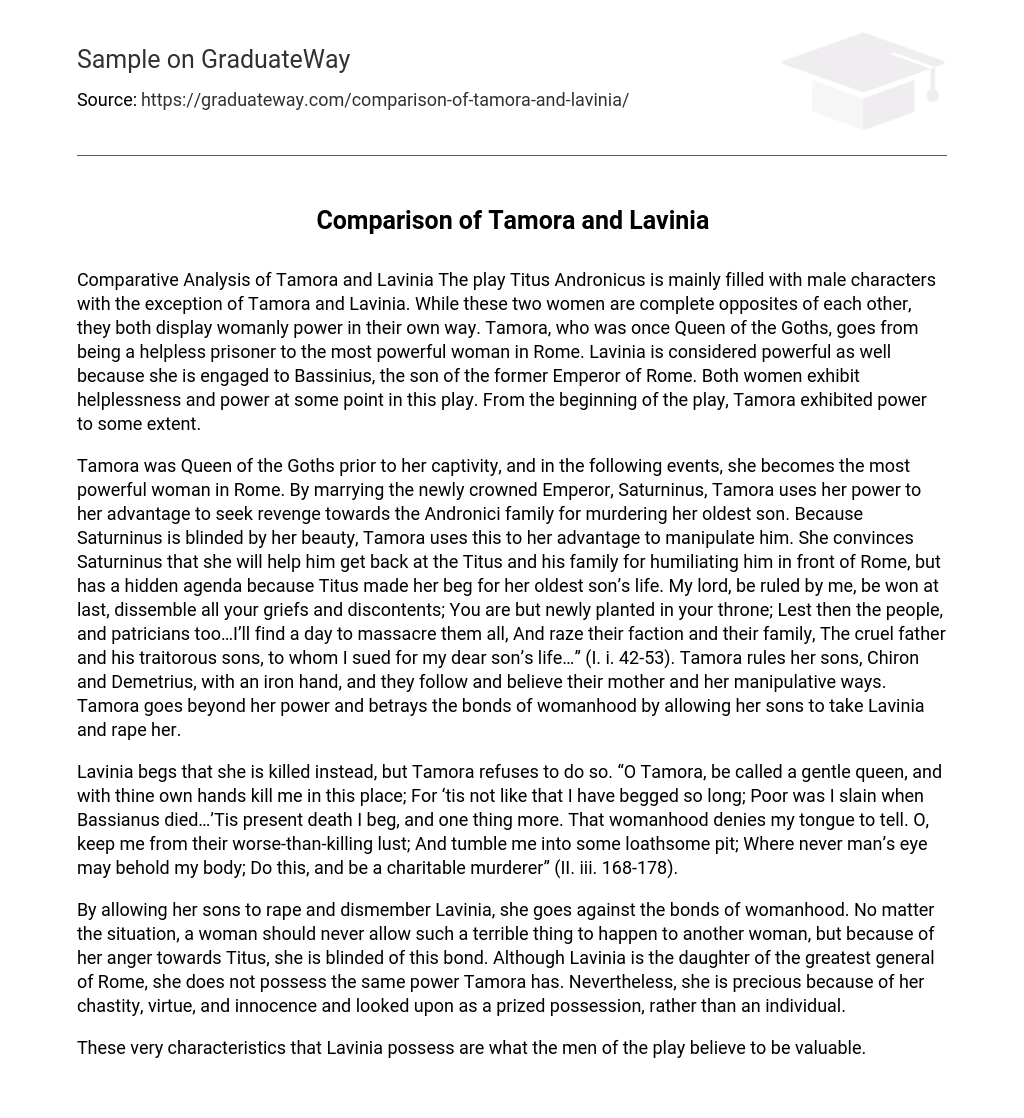In the play Titus Andronicus, there are mainly male characters, but Tamora and Lavinia stand out as exceptions. Despite their contrasting personalities, both women demonstrate their own form of feminine power. Tamora, previously Queen of the Goths, transforms from a captive into the most influential woman in Rome. Likewise, Lavinia holds power as she is engaged to Bassinius, the son of the former Emperor of Rome. Throughout the play, both women experience moments of vulnerability and strength. Tamora, in particular, displays her power from the very beginning.
Tamora, the former Queen of the Goths, becomes the most powerful woman in Rome after marrying Emperor Saturninus. She exploits her influence to seek revenge against the Andronici family for killing her eldest son. Tamora manipulates Saturninus, taking advantage of his infatuation with her beauty. She convinces him to help her retaliate against Titus and his family for publicly humiliating him, while hiding her true motive – Titus had made her plead for her son’s life. Tamora rules over her sons, Chiron and Demetrius, with an iron fist, and they unquestioningly follow their mother’s manipulative ways. Going beyond the limits of womanhood, Tamora allows her sons to ravage Lavinia in an ultimate betrayal of trust.
Lavinia desperately pleads to Tamora, urging her to kill her instead. She asks Tamora to be a merciful queen and to personally end her life right there. Lavinia reveals that she has been suffering ever since Bassianus was killed. She begs for immediate death and something unspeakable that womanhood prevents her from saying. She implores Tamora to protect her from being subjected to the horrifying desires of others, and to dispose of her in a repulsive pit where no one will ever lay eyes upon her. If Tamora grants this request, Lavinia would consider it a compassionate act of murder” (II. iii. 168-178).
By permitting her sons to rape and mutilate Lavinia, Tamora defies the sisterhood among women. Irrespective of circumstances, a woman should never permit such a horrifying act against another woman. However, driven by her rage towards Titus, she is unaware of this connection. While Lavinia may not possess the same authority as Tamora, despite being the daughter of Rome’s most renowned general, she is valued for her purity, virtue, and innocence, seen as a coveted possession rather than an independent being.
These traits that Lavinia possesses are seen as valuable by the men in the play. She is the object of men’s desires, but after her rape, she becomes undesirable. Lavinia becomes the catalyst for Titus and his family seeking revenge on the Emperor and Tamora. Her innocence causes people to switch from being humane to vengeful beings. Although they are very different women, a comparison can still be made between them in terms of possessing feminine power.





